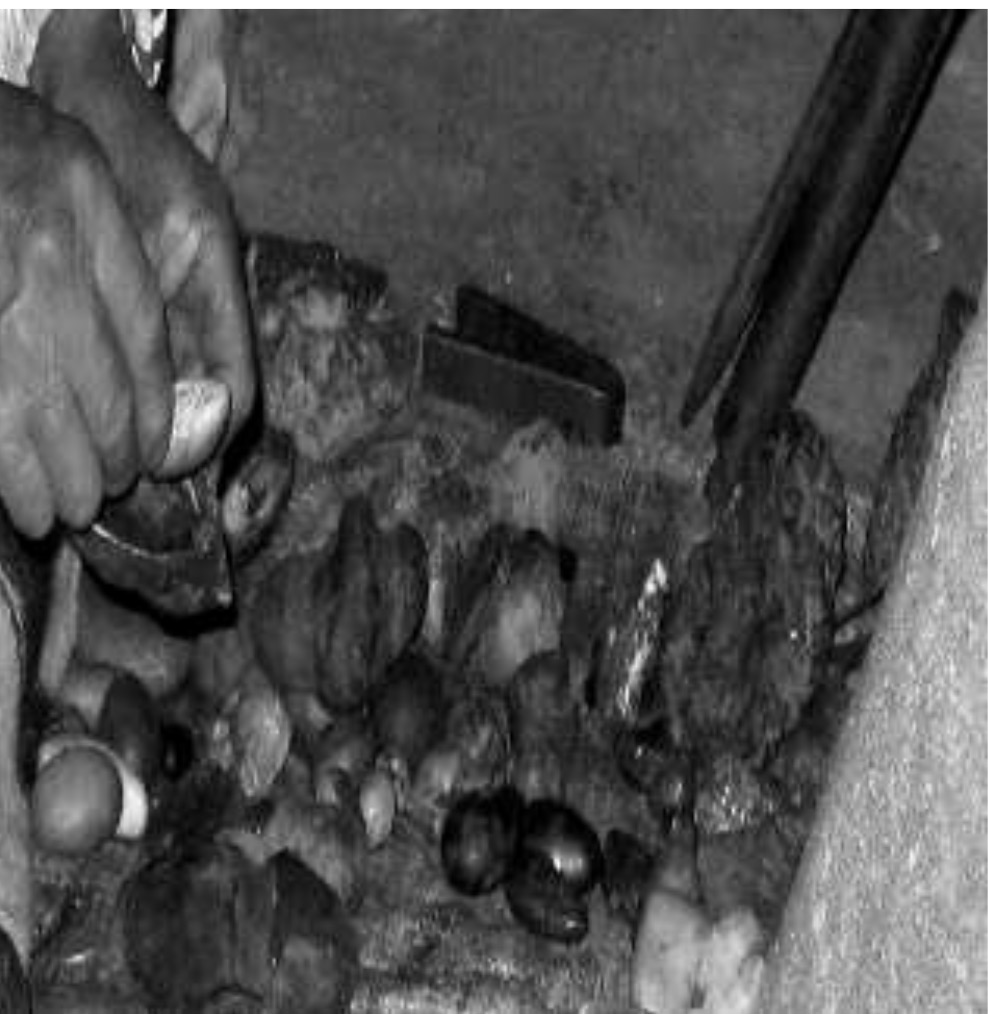Anthropology of Religion Events
PAST EVENTS
Conviviality and its Discontents: Religious Pluralism in Contemporary Urban Settings
18-19 September 2017Lisbon.
The objective of the workshop was to find ways to move beyond the strictures of monolithic approaches such as ‘the anthropology of Islam’ or ‘the anthropology of Christianity’.
 AMERINDIAN RITES AND NON-HUMAN ENTITIES IN SOUTH AMERICA: REASSESSMENTS AND COMPARISONS
AMERINDIAN RITES AND NON-HUMAN ENTITIES IN SOUTH AMERICA: REASSESSMENTS AND COMPARISONS
A workshop on Amerindian Studies
December, 2nd – 6th 2013 (NIAS)
Download PDF Programme ![]()
Organizer:
Juan Javier Rivera Andía
EURIAS Fellow, NIAS & Humboldt Fellow, Department of Anthropology of America, University of Bonn.
T +31 (0) 70-5122 770
E jjriveraandia@gmail.com
Sponsors:
European Association of Social Anthropologist (EASA) (Anthropology of Religion
Network)
Netherlands Institute of Advanced Study in
the Humanities and Social Sciences (NIAS)
Description
Nowadays Amerindian cosmologies have become one of the most important loci of debate in the anthropology of religion. Nevertheless, ethnographic comparisons between South America highlands and lowlands, as far as religious ritual and practices are concerned, are still lacking. The main purpose of this workshop is to explore the comparative possibilities between these regions. It is difficult to overestimate the necessity to analyze the contrasts and continuities between indigenous cosmologies and practices of South American highlands and lowlands. It is important to point out that we link this need of systematic comparisons with a solid use of an ethnographic approach.
This workshop will bring together researchers from different European institutions who are working on indigenous religions and rituals in the Amazonia and in the Andes. Papers from anthropology, sociology, cultural studies, folklore studies, ethnomusicology, and the history of religion are welcome.
LIST OF PARTICIPANTS
Group 1 (moderator: Marieka Sax)
1. MARÍA A. GUZMAN-GALLEGOS, Fafo - Institute for Applied International Studies (Norway). SESSION 1.
2. MINNA OPAS, The University of Turku, Department of Comparative Religion (Finland). SESSION 2.
3. CAMILLA MORELLI, The University of Manchester, Social Anthropology Department (United Kingdom). SESSION 3.
Group 2
(Moderator: Camilla Morelli)
4. JONATHAN HILL, Southern Illinois University – Carbondale, Sociocultural Faculty (United States of America). SESSION 4.
5. PENELOPE DRANSART, University of Wales Trinity Saint David, School of Archaeology, History and Anthropology (United Kingdom). SESSION 5.
(Moderator: Juan Javier Rivera Andía)
6. ARISTÓTELES BARCELOS-NETO, University of East Anglia, School of Art History and World Art Studies (United Kingdom). SESSION 6.
7. ALFONSO OTAEGUI, École des hautes études en sciences sociales (EHESS), Laboratoire d’Anthropologie Sociale (France). SESSION 7.
Group 3 (moderator: Minna Opas)
8. HARRY WALKER, London School of Economics (United Kingdom). SESSION 8.
9. CHRISTOPHER BALL, University of Notre Dame, Department of Anthropology (United States of America). SESSION 9.
10. MARIEKA SAX, Carleton University, Department of Sociology and Anthropology (Canada). SESSION 10.
PAST EVENTS
Network workshop
Atheism and Anthropology: Researching Atheism and Self-searching Belief and Experience
University College London, Daryll Forde seminar room, 2nd floor, Taviton Street 14
21 September, 2011.
Sponsored by the European Association of Social Anthropologists and EASA Anthropology of Religion Network
Convenors
Ruy Llera Blanes (Institute of Social Sciences, University of Lisbon)
Galina Oustinova-Stjepanovic (University College London)
Headline clashes between new atheists such as Daniel Dennett and Richard Dawkins and various religious leaders have shown that strong convictions inform atheist and religious discourses, searching to convey their own propositional truths. Some people argue that atheism has turned militant; others suggest religious education is a menace. Yet, what is atheism? How are subjectivities, ideas, embodied practices and material environments inflected with atheism? These matters are often neglected in anthropology for the simple reason that the discipline itself is an offspring of methodological atheism caught in an awkward relationship with theology and religious performances.
This workshop adopts a two-pronged approach to the research of atheism. We have invited scholars who research atheism as historical, political, and cultural articulations of non-belief, atheistic critique, political and practical disinterestedness in matters of religions. Through our workshop, we will explore the definitions and manifestations of atheism through the comparison and analysis of a number of ethnographic case studies. Furthermore, we will address the questions of specifically religious reflexivity in anthropology by considering the ethical and methodological implications of conducting research as atheist anthropologists and representing religious traditions and ontologies in the secular language of anthropology.. A few questions worth considering:
- Is an anthropology of atheism possible, or necessary?
- Are atheism and religiosity competing, opposed regimes of truth? Can atheism be researched as a form of belief? What are the additional dimensions of atheism that are not covered by the concept of belief?
- What does secularism tell us about atheism?
- Is atheism as awkward as theology for anthropology? Is anthropology an inevitably non-theistic discipline? Can you teach anthropological theories of religion to students of anthropology who take witchcraft seriously?
Keynote Lecture by Matthew Engelke (London School of Economics)






